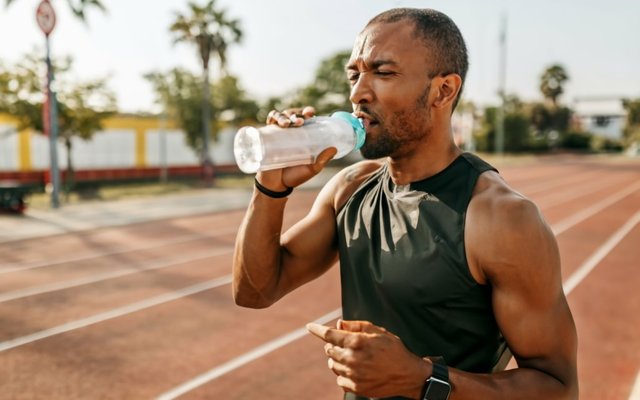Staying properly hydrated is crucial for optimizing performance and maintaining health during exercise. Dehydration can lead to fatigue, decreased performance, and even serious health complications. Whether you're an athlete or someone who enjoys regular physical activity, here are some essential tips to help you avoid dehydration during exercise:

• Pre-hydration: Start your exercise session well-hydrated by drinking fluids beforehand. Aim to consume about 16 to 20 ounces of water or a sports drink about 4 hours before exercise and another 8 to 12 ounces 10 to 15 minutes before starting.
• Drink fluids regularly: During exercise, it's important to drink fluids regularly to replace the water lost through sweat. Sip on water or a sports drink every 15 to 20 minutes, especially during intense or prolonged workouts.
• Monitor your sweat rate: Everyone sweats differently, so it's essential to monitor your sweat rate during exercise. Weigh yourself before and after exercise to determine how much fluid you've lost through sweat. For every pound lost during exercise, aim to drink 16 to 24 ounces of fluid to rehydrate adequately.
• Choose the right fluids: While water is generally a good choice for hydration during exercise, sports drinks can be beneficial for prolonged or intense workouts lasting longer than 60 minutes. Sports drinks contain electrolytes like sodium and potassium, which help replace those lost through sweat and maintain proper fluid balance.
• Avoid excessive caffeine and alcohol: Caffeine and alcohol can have diuretic effects, increasing urine production and potentially leading to dehydration. Limit your intake of caffeinated and alcoholic beverages before and during exercise, opting for water or sports drinks instead.
• Pay attention to the weather: Hot and humid weather can increase sweat rates and fluid loss during exercise. Adjust your fluid intake accordingly and take breaks in shaded or cooler areas to prevent overheating and dehydration.
• Wear appropriate clothing: Lightweight, breathable clothing can help facilitate sweat evaporation and keep your body temperature regulated during exercise. Avoid wearing excessive layers that can trap heat and increase sweat production.
• Listen to your body: Pay attention to signs of dehydration such as thirst, dry mouth, headache, dizziness, or dark-colored urine. If you experience any of these symptoms, stop exercising, and rehydrate immediately.
• Rehydrate after exercise: After completing your workout, continue to drink fluids to replace any remaining fluid losses and promote recovery. Aim to drink at least 16 ounces of water or a sports drink for every pound lost during exercise.
• Consider electrolyte supplementation: In addition to hydrating fluids, you may benefit from electrolyte supplementation, especially if you're exercising in extreme conditions or for an extended duration. Electrolyte tablets or powders can help replenish sodium, potassium, and other essential minerals lost through sweat.
By following these tips, you can maintain proper hydration levels and optimize your performance and well-being during exercise. Remember that staying hydrated is not just important during workouts but also throughout the day to support overall health and vitality. Listen to your body, stay hydrated, and enjoy your active lifestyle to the fullest.